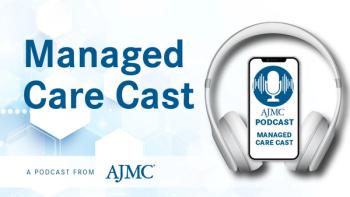
A DNA sequencing analysis associated Q192R polymorphism in the paraoxonase 1 gene with female infertility in Saudi women.

A DNA sequencing analysis associated Q192R polymorphism in the paraoxonase 1 gene with female infertility in Saudi women.

Asthma management strategies should focus on accessible, affordable, and quality care, primarily in low-income and middle-income settings, study finds.

Known to be a contributing factor to polyp development at high levels, periostin’s potential as a biomarker for eosinophilic chronic rhinosinusitis (ECRS) severity was investigated in a new study in which outcomes were compared between patients who had ECRS and those with non-ECRS.

Health care expert and lived experience panels came to a consensus on several aspects that should be considered in the decision to offer and continue active surveillance for prostate cancer.

Research showed that a mean of 19.5%, 17.1%, and 43.3% of adults with diabetes did not maintain continuity in use of medications to lower glucose, blood pressure, or lipid levels, respectively.

Compared with patients with poor continuous positive airway pressure (CPAP) compliance, patients with good CPAP compliance saw improvements in lung function after 12 months.

Behavioral and combined behavioral and pharmacological interventions were investigated for their potential to help improve sleep outcomes in children with attention-deficit/hyperactivity disorder (ADHD).

The exact reasons for the links are not yet clear, although some evidence suggests inflammation plays a role.

A review and meta-analysis published in the journal Radiology found MRI to be the most effective supplemental breast cancer screening method for women with dense breasts and negative mammogram results.

Vaccination rates against influenza and pneumococcus were lower in patients receiving organ transplants who lived outside of urban areas and had lower socioeconomic status.

Pharmaceutical companies will not refund prepayments made by global organization Gavi for COVID-19 vaccines it no longer needs; following the countrywide baby formula shortage of 2022, the FDA looks to consolidate food division leadership; a province in Canada starts a 3-year drug decriminalization program to try to reduce drug overdose deaths.

Developing a terminology strategy that reflects real-world practice and industry standards can help data scientists and other allied data professionals efficiently and accurately identify clinically relevant insights that help improve the health of populations and individual patients.

Significant geographical variation was found regarding the prevalence and incidence of epilepsy in United Kingdom primary care data between 2013 and 2018, suggesting a potential relationship between the disease and deprivation.

This new study examined uptake and use of a digital tool meant to aid in diabetes prevention.

In a recent paper, researchers described a new metric called the Parkinson’s Disease Social Functioning Scale (PDSFS) that aims to measure social functioning in patients with this disease.

Investigators found a higher overall health care burden among a large cohort of patients despite their recovery from sepsis, with potential long-term implications and higher risk of cardiovascular disease.

Terrance Mayes, EdD, and Loretta Erhunmwunsee, MD, FACS, discuss their new roles as chair and vice-chair, respectively, of the National Comprehensive Cancer Network’s (NCCN) new Diversity, Equity, & Inclusion (DEI) Directors Forum.

The government is allowing Medicare Advantage (MA) plans to delay returning hundreds of millions of dollars or more in government overpayments; a proposed new extension of the Affordable Care Act (ACA) might make birth control coverage more accessible for certain private insurance plans; a study found that students lost around 33% of their school year because of the pandemic’s educational barriers and are struggling to regain that lost time.

In Canada, monthly prices were significantly different for cancer drugs with substantial clinical benefit vs low benefit.

The Biden administration has said it would give 60 days notice before ending the public health emergency, which was set to end April 11, and the national emergency was set to end March 1.

On this episode of Managed Care Cast, we speak with Reverend Paul Abernathy, CEO of the Neighborhood Resilience Project and board member of UPMC for You, who discusses his experiences in promoting health and resiliency in trauma-affected communities, as well as challenges related to access and accessibility of care and medical mistrust.

The first of at least 8 adalimumab biosimilars has finally launched in the United States after being kept off the market for years due to settlement agreements with the maker of the reference product, Humira.

The real-world oncology data and analytics company COTA has joined the Clinical Research Data Sharing Alliance, a nonprofit consortium that aims to accelerate progress in cancer therapy development.

The United States possesses the highest infant and maternal mortality rates compared with any other high-income country, even though it spends the most on health care.

Mindfulness training may boost resilience and lessen morbidities for people with Parkinson disease, compared with conventional exercise.

A follow-up study on children of pregnant smokers found that taking vitamin C supplements during pregnancy may increase airway function and reduce wheezing of offspring at age 5.

A recent study has found that the prevalence of vision impairment in US adults 71 years and older was higher in 2021 compared with prior estimates.

As of September 2022, all but 2 states had implemented newborn screening programs for spinal muscular atrophy (SMA), accounting for 98% of births in the United States.

A new study estimated Medicare drug price negotiation savings; food benefits provided under the Supplemental Nutrition Assistance Program (SNAP) will return to prepandemic amounts; pharmacies reduce hours to cope with staffing shortages, improve work-life balance.

The findings from among patients with myasthenia gravis (MG) could point the way to a potential new drug target, the authors said.

259 Prospect Plains Rd, Bldg H
Cranbury, NJ 08512
© 2025 MJH Life Sciences®
All rights reserved.
